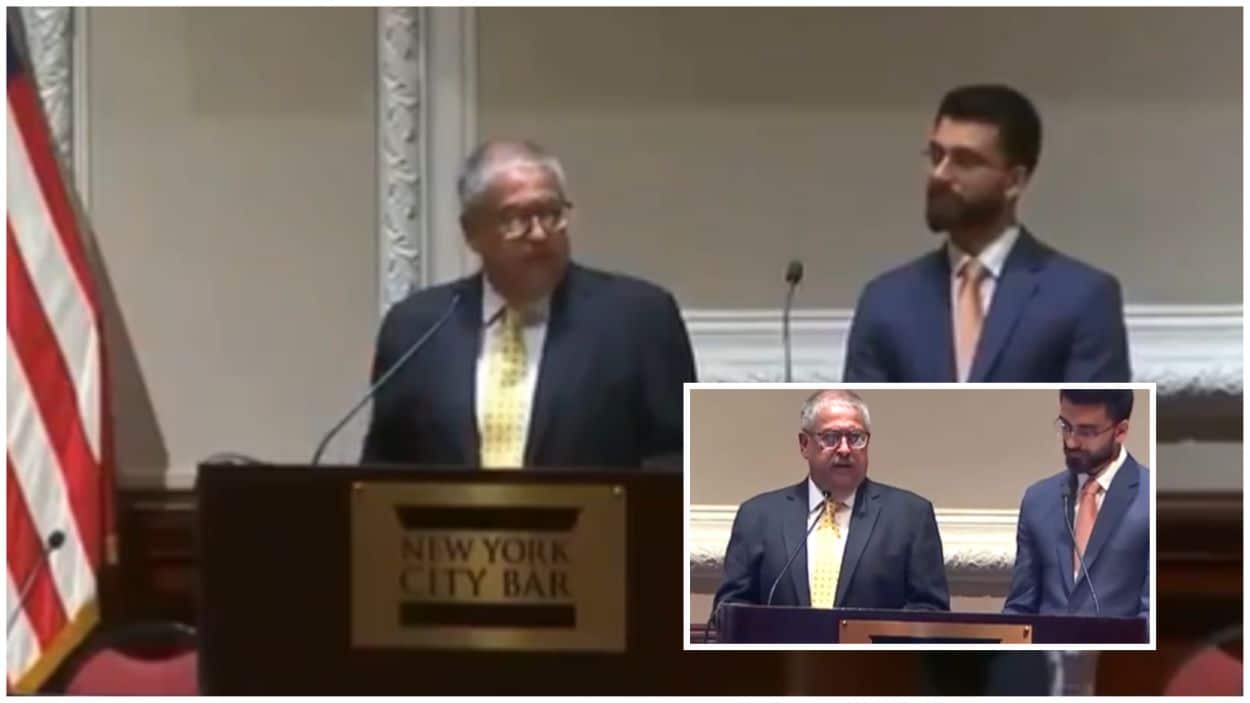Justice Athar Minallah of the Supreme Court of Pakistan recently addressed the New York Bar members in the United States. During his speech, Justice Minallah provided insightful commentary on Pakistan’s judicial challenges and political interventions. He critically evaluated several high-profile cases and the judiciary’s role in political affairs in Pakistan.
Justice Minallah highlighted the Moigate case, expressing concern that the Supreme Court had overreached by encroaching on the executive’s domain. He criticized the court’s decision to declare an ambassador a traitor and to disqualify an elected prime minister, actions he deemed beyond its jurisdiction. “The Supreme Court should not have taken up the Moigate case; it overstepped into the executive’s domain,” he remarked, underscoring the tension between judicial overreach and political governance.
He also addressed the broader issue of law enforcement in Pakistan, lamenting the interference by those outside the legal framework, which has stunted the development of robust legal enforcement. “Unfortunately, in Pakistan, the enforcement of the law has not flourished due to the interference of those who have no right to govern the country,” Justice Minallah stated, pointing to the negative impacts of unauthorized governance on legal integrity.
In a personal anecdote about his commitment to judicial accessibility and responsiveness, Justice Minallah recounted an incident from his tenure as the Chief Justice of the Islamabad High Court. He opened the court late at night on April 9 in response to media discussions about the potential imposition of martial law, emphasizing that courts must be proactive in critical times. “In such a situation, all courts should open at night,” he declared, highlighting his proactive approach to justice during crises.
Justice Minallah also reflected on the shifting perceptions and challenges he faced from various quarters within Pakistan. He noted that while he was once seen as the sole source of judicial relief, the individuals who benefited from his court later propagated negative rhetoric against him. “At one time, relief was only available from my court, and now those same people are spreading propaganda against me,” he observed, illustrating the volatile relationship between the judiciary and public opinion.
Through his address, Justice Athar Minallah provided a candid look into the complex dynamics of Pakistan’s legal and political landscape, advocating for a more restrained judicial approach and the necessity of maintaining judicial independence amidst political pressures.






